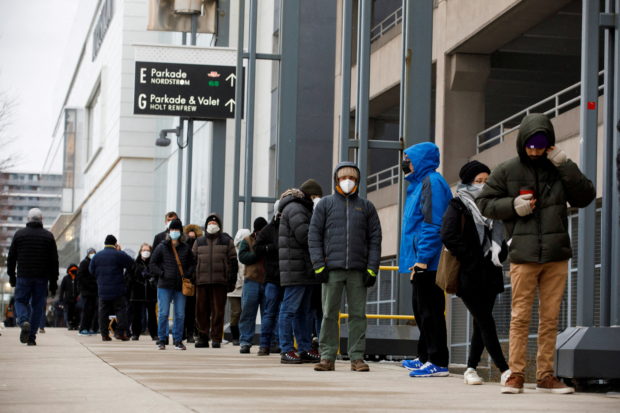
People queue to pick up coronavirus disease (COVID-19) antigen test kits, as the latest Omicron variant emerges as a threat, at Yorkdale Mall in Toronto, Ontario, Canada December 22, 2021.(REUTERS)
The Canadian province of Ontario on Thursday announced new measures, including shorter isolation time for COVID-19 patients, to tackle hurdles brought about by an exponential rise in coronavirus cases due to the Omicron variant.
Ontario, like other provinces across Canada, has been reporting new daily COVID-19 case records as the highly infectious Omicron variant takes hold. On Thursday, it reported 13,807 new coronavirus cases.
The rapid rise in cases has forced ten of thousands of people into isolation and made it difficult for people to get their hands on COVID-19 tests.
Among the measures taking effect on Friday, Ontario will shorten the isolation period for vaccinated individuals with COVID-19 to five days from the onset of symptoms, the province’s chief medical officer, Kieran Moore, told reporters at a briefing.
Ontario residents, with proper masking and physical distancing, would be allowed to stop isolating after five days if their symptoms resolve or if they are improving for at least 24 hours, Moore said.
The province, Canada’s most populous, will also limit free PCR-tests to only the most vulnerable cases, such as people with risk of severe illness from COVID-19 and workers in high-risk settings.
Others with mild symptoms, or those looking for a confirmatory COVID-19 test, are asked not to seek testing.
“I do hope that Ontarians will understand that we must together protect this limited resource for those that need it the most,” Moore said.
Ontario is also starting to offering a fourth vaccine shot to residents of long-term care homes, retirement homes and other older adults living in groups three months after their third dose.